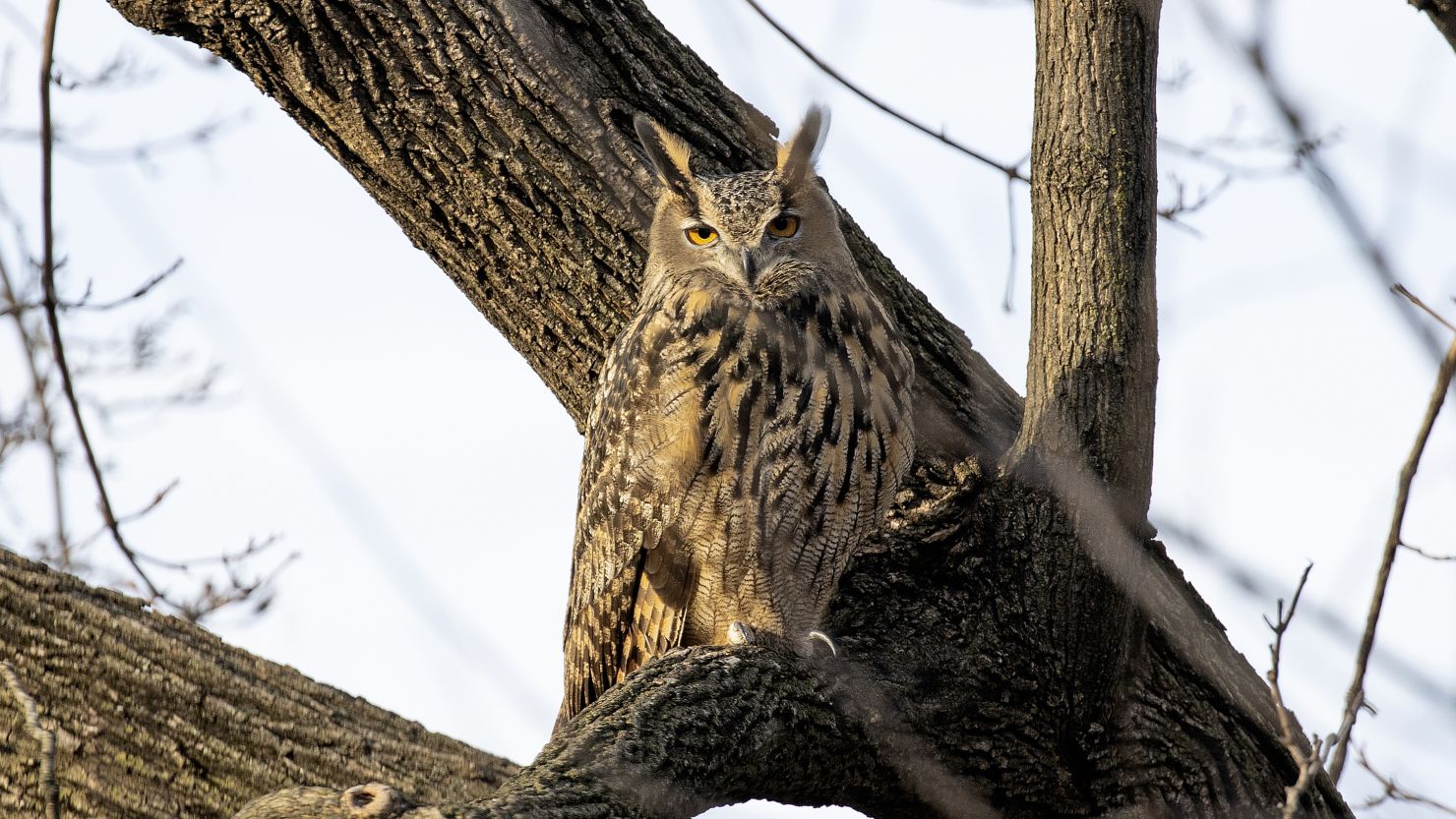Just over a year ago, Flaco the Eurasian eagle-owl captivated the hearts of New Yorkers when he fled from a Central Park Zoo enclosure after it was vandalized.
Flaco, dubbed “one of New York’s Flyest” by New York City Mayor Eric Adams, died Friday after colliding with a building in Manhattan, the?Wildlife Conservation Society announced.
Following Flaco’s getaway in February 2023, authorities made numerous attempts to recapture him, without success. Flaco became an attraction in Central Park with birders and others regularly posting updates on X about his whereabouts and eating habits.
Despite efforts from members of the Wild Bird Fund who responded quickly to Friday’s collision scene, the bird was declared dead, the WCS said. The Wild Bird Fund notified zoo staff?who picked up the bird and transported him to the Bronx Zoo for a necropsy.
Initial findings of the necropsy are consistent with death due to acute traumatic injury, the Central Park Zoo said in a statement, but further testing is needed to determine any underlying factors, like exposure to toxins or infectious diseases.
“The vandal who damaged?Flaco’s exhibit jeopardized the safety of the bird and is ultimately responsible for his death,” the Wildlife Conservation Society said. “We are still hopeful?that?the NYPD, which is investigating the vandalism, will ultimately make an arrest.”
The Central Park Zoo discovered on February 2, 2023, that Flaco escaped from his enclosure after someone vandalized the exhibit and cut its stainless steel mesh, the zoo had said.
Flaco had frequently been seen in and near Central Park and other locations across Manhattan since then, according to the society. Its staff monitored him throughout the year and were prepared to recover him if he showed any sign of difficulty or distress, the WCS said.
With?a wingspan of up to 6 feet, the Eurasian eagle-owl?is?one of the world’s largest?owls.?It can weigh anywhere from 3 to 9 pounds,?with?females typically being larger than males.
Like most other?owls, it’s nocturnal. The?owl?hunts at night and tends to sleep during the day. In the wild, its?life span ranges from 10 to 20 years, while some live?up to 60 years in captivity.
“We appreciate all the support and concern over the well-being of Flaco throughout the past year and the many people who contacted us with updates,” the conservation society said. “We especially appreciate the quick response by the staff of the Wild Bird Fund in their attempt to help Flaco.”

